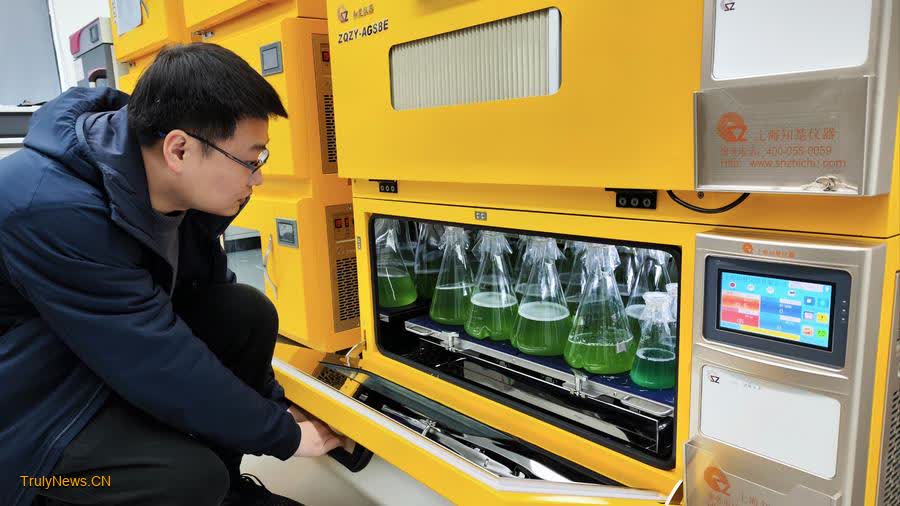
Ni Jun, a researcher at the School of Life Sciences and Biotechnology under the Shanghai Jiao Tong University, observes bottles filled with blue-green algae cells modified by gene editing in his lab in east China’s Shanghai, Jan. 12, 2024. (Xinhua/Dong Xue)
SHENZHEN, Oct. 28 (Xinhua) — The Chinese Academy of Sciences (CAS) announced on Monday that it has launched an international program on synthetic cells in Shenzhen, south China to promote frontier research in life sciences and biotechnological innovation on a global scale.
Leveraging the scientific prowess of the CAS Shenzhen Institute of Advanced Technology, the program aims to tackle groundbreaking research questions in the field of synthetic biology. Additionally, the initiative seeks to pool expertise worldwide and establish a cooperative paradigm to tackle common challenges faced by humanity, according to the CAS, China’s top institution in terms of natural sciences.
Synthetic biology is the science of building systems that mimic the structure and function of living cells from scratch. Researchers combine tools from chemistry, materials science and biochemistry to develop functional and structural building blocks for constructing synthetic cell-like systems.
In recent years, the CAS has been committed to international collaborations in the field of synthetic cells.
In October 2023, the Shenzhen Institutes of Advanced Technology, together with universities and research institutions from China, Japan, the Republic of Korea, Malaysia, Singapore and Thailand, established the Asian alliance for synthetic cells. A memorandum of cooperation was signed in April to lay the foundation for broader international collaborative relationships.